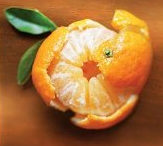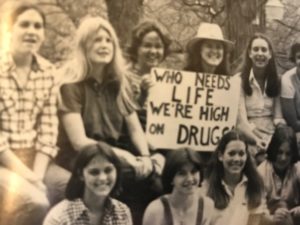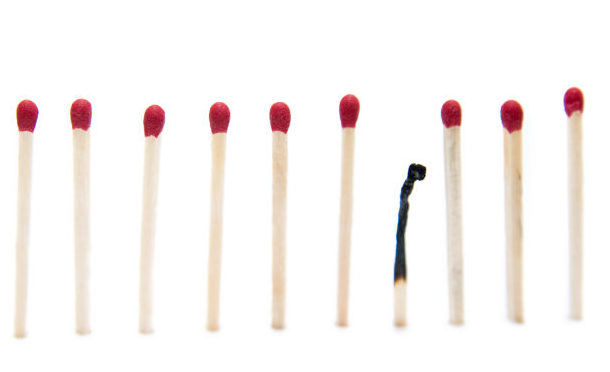From innumerable scenes in childhood and youth, why do certain ones get crystalized in memory? Trauma? Certainly. A shift of understanding? Maybe. A moment of genuine connection with a parent? A spiritual experience? Likely.
 For me, particular scenes are intensely clear. Some are beautiful…like watching my dad peel an orange. His skilled hands worked the knife, while orange mist plumed in the sunlight. His kind presence surrounded me as we ate it together. I was only three. It is my earliest memory.
For me, particular scenes are intensely clear. Some are beautiful…like watching my dad peel an orange. His skilled hands worked the knife, while orange mist plumed in the sunlight. His kind presence surrounded me as we ate it together. I was only three. It is my earliest memory.
 Other memories left a pit in my stomach. There was the time our family picked up a kid named Buddy (not his real name) from a poor neighborhood in Cleveland. The program, called “Friendly Town,” involved volunteer families hosting underprivileged kids to give them new experiences for a week.
Other memories left a pit in my stomach. There was the time our family picked up a kid named Buddy (not his real name) from a poor neighborhood in Cleveland. The program, called “Friendly Town,” involved volunteer families hosting underprivileged kids to give them new experiences for a week.
I was probably nine at the time, but I remember everything…Buddy’s dilapidated living conditions…the smell of mildew…the weary face of his mother…a pot on their stove with just a ham bone simmering in water. My dad quietly instructed us to lock our car doors as we drove away. I experienced my mother’s compassion and frustration when Buddy wet the bed every single night. Something was wrong in the world.
As I grew up, memories served as markers as my world widened. While I didn’t experience trauma in my tender years, I became increasing aware of it.
 The spring of 1970, my teenage friends and I wore cutoff jeans and painted flowers on our legs with tempera paint like colorful tattoos of peace and love. I was the hopeful kind back then.
The spring of 1970, my teenage friends and I wore cutoff jeans and painted flowers on our legs with tempera paint like colorful tattoos of peace and love. I was the hopeful kind back then.
 Yet the protests against the Vietnam War exploded at Kent State University about 50 miles away. Neil Young’s lament, “Four dead in Ohio…” played like a drumbeat in my mind.
Yet the protests against the Vietnam War exploded at Kent State University about 50 miles away. Neil Young’s lament, “Four dead in Ohio…” played like a drumbeat in my mind.
As a freshman in college, I recall being overcome with tears at a fraternity party, wondering how many drunk girls would get “used” that night. I cringed as a guy threw up in the corner. The ruin of it all, the lostness.
 Sorrow welled in my eyes. Why did I carry this burden? I left my staggering date by the “hairy buffalo” punchbowl and climbed out the bathroom window. Two years later, a college guy invited me to his house for lunch after class, and I narrowly escaped a date rape situation.
Sorrow welled in my eyes. Why did I carry this burden? I left my staggering date by the “hairy buffalo” punchbowl and climbed out the bathroom window. Two years later, a college guy invited me to his house for lunch after class, and I narrowly escaped a date rape situation.
My view of things was becoming increasingly jaded. Life seemed fraught with trouble. Little by little, I started picking up woes around me. I didn’t want to feel so much, but I seemed hardwired for it.
 My father brought a moment of clarity one day when he stopped to visit me at college. We sat with our lunch trays in the cafeteria at Smith Hall. As other students filed out, I remember a pause in our conversation. I felt him studying me. “You have a lot of empathy,” he said, reflectively. It could’ve been a passing comment, lost in a sea of countless words. Yet somehow, it imprinted on my identity. I didn’t know if it was a compliment or a problem. Turns out it was both.
My father brought a moment of clarity one day when he stopped to visit me at college. We sat with our lunch trays in the cafeteria at Smith Hall. As other students filed out, I remember a pause in our conversation. I felt him studying me. “You have a lot of empathy,” he said, reflectively. It could’ve been a passing comment, lost in a sea of countless words. Yet somehow, it imprinted on my identity. I didn’t know if it was a compliment or a problem. Turns out it was both.
 I was soaking in life with too much sensitivity and almost no understanding of how to offload the weight of it all. Friends died in car crashes, from drug overdoses, and by suicide. Leaders were corrupt. Businesses and marriages failed. Sad and tragic stuff slowly accumulated inside me.
I was soaking in life with too much sensitivity and almost no understanding of how to offload the weight of it all. Friends died in car crashes, from drug overdoses, and by suicide. Leaders were corrupt. Businesses and marriages failed. Sad and tragic stuff slowly accumulated inside me.
And eventually, it created a barrier with God. That was the real trouble.
I recently read Andrea Sandford Bareither’s book, Finding the Light and Easy Yoke. She tells her story of unhealthy burden bearing. Deep sorrow permeated her young world. Her father, John Sandford, pastored a church in Wallace Idaho when 91 local men perished in the Sunshine Mine. He performed funeral after funeral.
Soon after that when she was five, her parents started an inner healing ministry known as Elijah House, and their home became a highway of damaged and hurting people. The weighty problems around her felt soul-crushing.
 She writes, “Burden bearers are those who were created with a nature that is highly intuitive, empathetic, and sensitive to the emotional and spiritual state of the people or environments around them.” Burden bearing is meant to be a gift for the purpose of intercession. “But for those who don’t understand the gift,” she continues, “It can turn into a collision of confusion, unaccountable emotions, and even torment.” Andrea had to enter a season of healing from what she termed, “a graveyard of grief.” Her book gives tremendous advice on how to get free.[i]
She writes, “Burden bearers are those who were created with a nature that is highly intuitive, empathetic, and sensitive to the emotional and spiritual state of the people or environments around them.” Burden bearing is meant to be a gift for the purpose of intercession. “But for those who don’t understand the gift,” she continues, “It can turn into a collision of confusion, unaccountable emotions, and even torment.” Andrea had to enter a season of healing from what she termed, “a graveyard of grief.” Her book gives tremendous advice on how to get free.[i]
Burden bearing is meant to be a gift for the purpose of intercession.
 In the last twenty years, since my “teeter totter” revelation, I’ve been learning to roll the heaviness that empathy brings back to the One who created all things…and that singular shift has enhanced intimacy with God more than I can say.
In the last twenty years, since my “teeter totter” revelation, I’ve been learning to roll the heaviness that empathy brings back to the One who created all things…and that singular shift has enhanced intimacy with God more than I can say.
Think back to the landscape of your formative years. What stands out? Do you suffer the wounds of burden-bearing? It’s something to consider…
________________________
[i] Pgs. 10-11.








My earliest memories are a big pile of incongruities. I would be the only little kid who would gravitate towards a small child with cerebral palsy and play with her in the wading pool at the place I went to take swimming lessons. Then I would selfishly be part of little cliques growing up in grade school and up, you know, leaving others out and being unkind. I was a brat. But I always helped the ‘underdog’. I was a selfish only child, but generous and somehow felt sorry for the underprivileged kids. Anyway, after god got ahold of me by the neck (in a nice-ish way like a mother cat carries her kittens, but still . . .!) he led me into sort of helping by becoming an RN. YOU, however, being a burden bearer, let god use you and your tender yet pained heart to gain the beautiful wisdom to share with the rest of us. the suffering your empathy has brought you has not been wasted. Thanks for that, darling.
love
suzee B
Honestly Suzee, your comment made me cry. I often feel like I took too long to learn this important lesson, and frustrated God! You are such a sweet friend…. Love.. S
As the oldest child of a pair of extremely young parents without much maturity, I was parentified and completely responsible (I thought) for EVERYTHING. I took care of people, I meddled lovingly, I solved problems people didn’t even have, but the world was a needy and harsh place, and it was clear that it needed more people like me. I thanked God (seriously!) for creating me without needs since this way I could take care of the needs of others. It felt like service to a God who really appreciated my help. It reeks of pride and hubris, even though it came from a place of survival and good intentions.
That never, ever satisfies the longings of a person, and really bugs the people around her, but it’s hard to condemn people like me because we mean well, bless our hearts. The sad part is how little a part God was allowed to take. I didn’t realize I was being mini-God.
God started changing things for me, and as I grew stronger, He put more people and situations in my path that grew me to the point where He decided I was ready for some big, BIG testing and refining of my trust in Him. So He, in His sovereign wisdom allowed the unthinkable: my son is in jail for murder.
And yet I have not had a single broken-down crying, wailing, misery session. God prepared me in specific ways that only show in retrospect, but – I know how weird this sounds – but considering where I started, I feel like He chose me because I was ready. I have not once wondered “Why me?” I have thanked Him that He finds me ready to trust Him fully.
Some of the many, many blessings and rewards we have seen through this process: my son’s salvation, other family members being cornered by God, the opportunities to minister to others including inmates, and the gift of this witness. Plus all those blessings we will only see later on, if then.
God had to remove SELF from my picture. He had to show me how weak and helpless and useless and dependent I am, and how I would never, ever, ever take care of the people He is taking care of. He could only use me when I let go of my self image as a well-oiled machinery in His service and became an old pot-holder in His hands.
I have never known such peace and trust. I am grateful.
Nice Lady With Dog – You move me! To see what you’ve been through and where you are now is absolutely beautiful! You articulate it so well and I think you should consider publishing something on this. Many of us have taken a long time to learn some of these things and your wisdom needs to be passed on. Thanks for your honesty and humility. With love… S